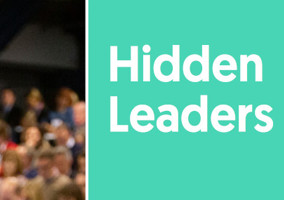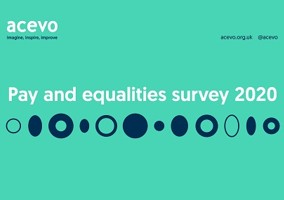Anti-bullying and equity, diversity and inclusion work requires changes in practice from all parts of the charity sector, as well as further funding, ACEVO has said.
Earlier this month an internal report about discrimination and bullying at NCVO was leaked to Third Sector. This prompted a wider conversation about bullying across the sector.
Using the hashtag #NotJustNCVO people shared experiences of bullying, racism and harassment at charities. Former and current staff are now calling on the charity sector to act on tackling bullying and racism in the sector.
However, it is not the first time these issues have been raised. At the end of 2019, ACEVO and the Centre for Mental Health published a report, In Plain Sight, which contained six recommendations, including one on the role of the Charity Commission, and one on the need for collective sector action.
Last summer ACEVO and Voice4Change England published the Home Truths: Undoing racism and delivering real diversity in the charity sector report, outlining steps the sector could take.
One of the long-term actions was to develop "independent or third-party mechanisms for reporting and addressing racism in the charity sector". The two bodies are currently putting together a funding proposal to build on their work.
'Create an environment where to act on issues of equity and inclusion is expected'
Kristiana Wrixon, head of policy at ACEVO, said: “The change for which we are advocating in Home Truths and In Plain Sight is to transform the diversity, equity and inclusion and safe cultures discussions from the periphery of charity life to the centre, and to create an environment where to act on issues of equity and inclusion is expected and norm.
“That will require changes in practice from all parts of the sector from infrastructure to trusts and foundations so that the charity landscape is permanently altered for the better.”
ACEVO has spoken repeatedly to the Charity Commission about the need for more guidance about workplace bullying. It has also held member meetings and had sessions at its annual conference regarding building safer cultures.
Nonetheless, ACEVO has said in order to realise the scale of the ambition of change outlined in In Plain Sight the membership body would need further funding.
ACEVO ask funders to sign anti-racism commitments
ACEVO had also asked 20 funders to publish data outlining the proportion of their grants that are awarded to BAME-led organisations or projects. It has so far received 14 responses, and most consented to their responses being published.
The Health Foundation said of the £2.5m made in donations to support the charitable sector in its response to Covid, it has ringfenced £0.5m to support BAME-led charities.
Meanwhile, Ruth Davidson at Comic Relief said: “We know we haven’t always got it right in the past and are learning to do better, our recent funding to 10 BAME-led intermediary partners is a step in the right direction.
“However, we will be further developing work in that area and are continually learning by partnering with such exciting and diverse organisations as well as continuing to drive forward this debate with other major funders in the UK and internationally.”
However, others said there were barriers to publishing the data, such as where grants are channelled through universities or other intermediaries.
The Pears Foundation said: “Pears Foundation is not open to applications and our support for communities in the UK is often distributed through charities with federated or membership structures or, in the case of specialist funding areas such as Holocaust education in England or international development in Israel, is directed through higher education institutions. Consequently, we have not been able to establish a means of collecting meaningful data on this issue across our funding that would be accurate and proportionate.”












